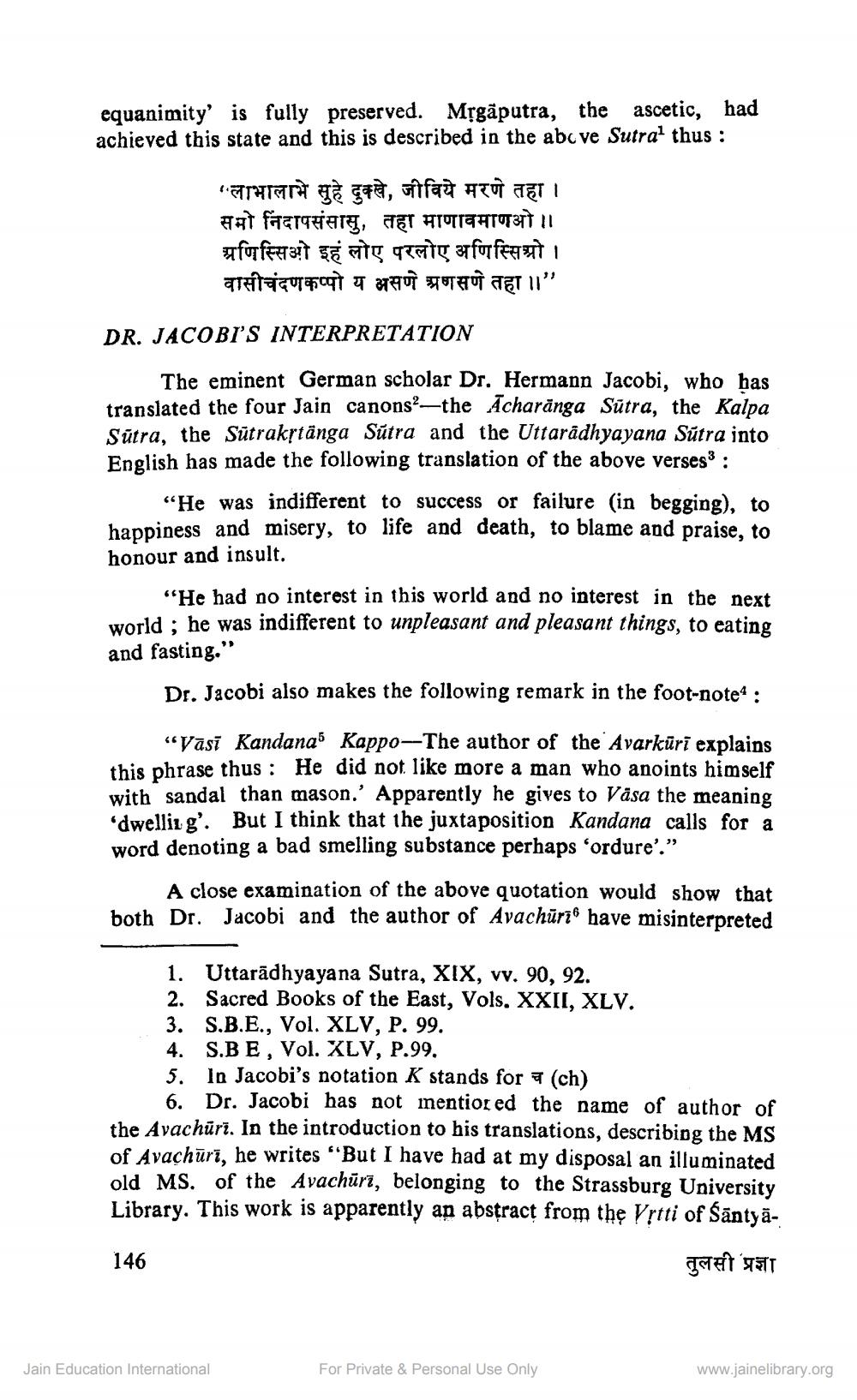________________
equanimity' is fully preserved. Mrgāputra, the ascetic, had achieved this state and this is described in the above Sutral thus :
“लाभालाभे सुहे दुक्खे, जीविये मरणे तहा । समो निंदापसंसासु, तहा माणावमाणओ॥ अणिस्सिओ इह लोए परलोए अणि स्सियो । वासीचंदणकप्पो य असणे अणसणे तहा॥"
DR. JACOBIS INTERPRETATION
The eminent German scholar Dr. Hermann Jacobi, who has translated the four Jain canons—the Acharānga Sūtra, the Kalpa Sūtra, the Sūtrakrtänga Sūtra and the Uttaradhyayana Sūtra into English has made the following translation of the above verses3 :
“He was indifferent to success or failure (in begging), to happiness and misery, to life and death, to blame and praise, to honour and insult.
"He had no interest in this world and no interest in the next world; he was indifferent to unpleasant and pleasant things, to eating and fasting."
Dr. Jacobi also makes the following remark in the foot-notes :
"Vasī Kandana5 Kappo--The author of the Avarkūrī explains this phrase thus : He did not like more a man who anoints himself with sandal than mason.' Apparently he gives to Väsa the meaning
dwelling'. But I think that the juxtaposition Kandana calls for a word denoting a bad smelling substance perhaps 'ordure.”
A close examination of the above quotation would show that both Dr. Jacobi and the author of Avachūrī6 have misinterpreted
1. Uttarādhyayana Sutra, XIX, vv. 90, 92. 2. Sacred Books of the East, Vols. XXII, XLV. 3. S.B.E., Vol. XLV, P. 99. 4. S.BE , Vol. XLV, P.99, 5. In Jacobi's notation K stands for (ch)
6. Dr. Jacobi has not mentior ed the name of author of the Ayachūrī. In the introduction to his translations, describing the MS of Avachūrī, he writes "But I have had at my disposal an illuminated old MS. of the Avachūrī, belonging to the Strassburg University Library. This work is apparently an abstract from the Vrtti of Sāntya
146
तुलसी प्रज्ञा
Jain Education International
For Private & Personal Use Only
www.jainelibrary.org




